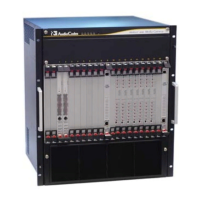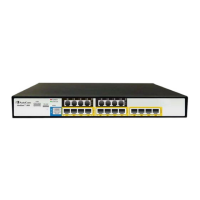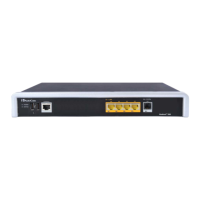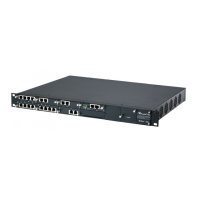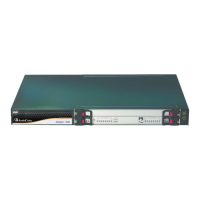CHAPTER20 SIP Definitions
Mediant 800 Gateway & E-SBC | User's Manual
7. Configure a dial plan rule according to the parameters described in the table below.
8. Click New, and then save your settings to flash memory.
Table 20-7: Dial Plan Rule Table Parameter Descriptions
Parameter Description
'Index'
index
[DialPlanRule_RuleIndex]
Defines an index number for the new table row.
Note: Each row must be configured with a unique index.
'Name'
name
[DialPlanRule_Name]
Defines a descriptive name, which is used when associating the
row in other tables.
The valid value is a string of up to 15 characters.
'Prefix'
prefix
[DialPlanRule_Prefix]
Defines the prefix number of the source or destination number.
The valid value is up to 50 characters. The following syntax can
be used:
■ 0-9: Specific digit.
■ x: Wildcard denoting any digit from 0 through 9.
■ z: Denotes a number from 1 through 9.
■ n: Denotes a number from 2 through 9.
■ a-z: Lower-case letter.
■ A-Z: Upper-case letter.
■ *: (Asterisk symbol) If it is the only character in the rule, it
denotes any number. To denote the asterisk "*" symbol
itself, precede it with the escape "\\" character (see below).
■ \\: (Backslash escape character) When it prefixes a wildcard
character (*, z, n, and x), the character itself is used and not
the meta-meaning. For example, "\\x" denotes the character
"x", while "x" is the wildcard denoting any digits from 0-9.
■ #: (Pound or hash symbol) When used at the end of the
prefix it denotes the end of the number. For example,
"54324#" represents a 5-digit number that starts with the
digits 54324.
■ .: (Period) Denotes any letter or digit.
- 517 -

